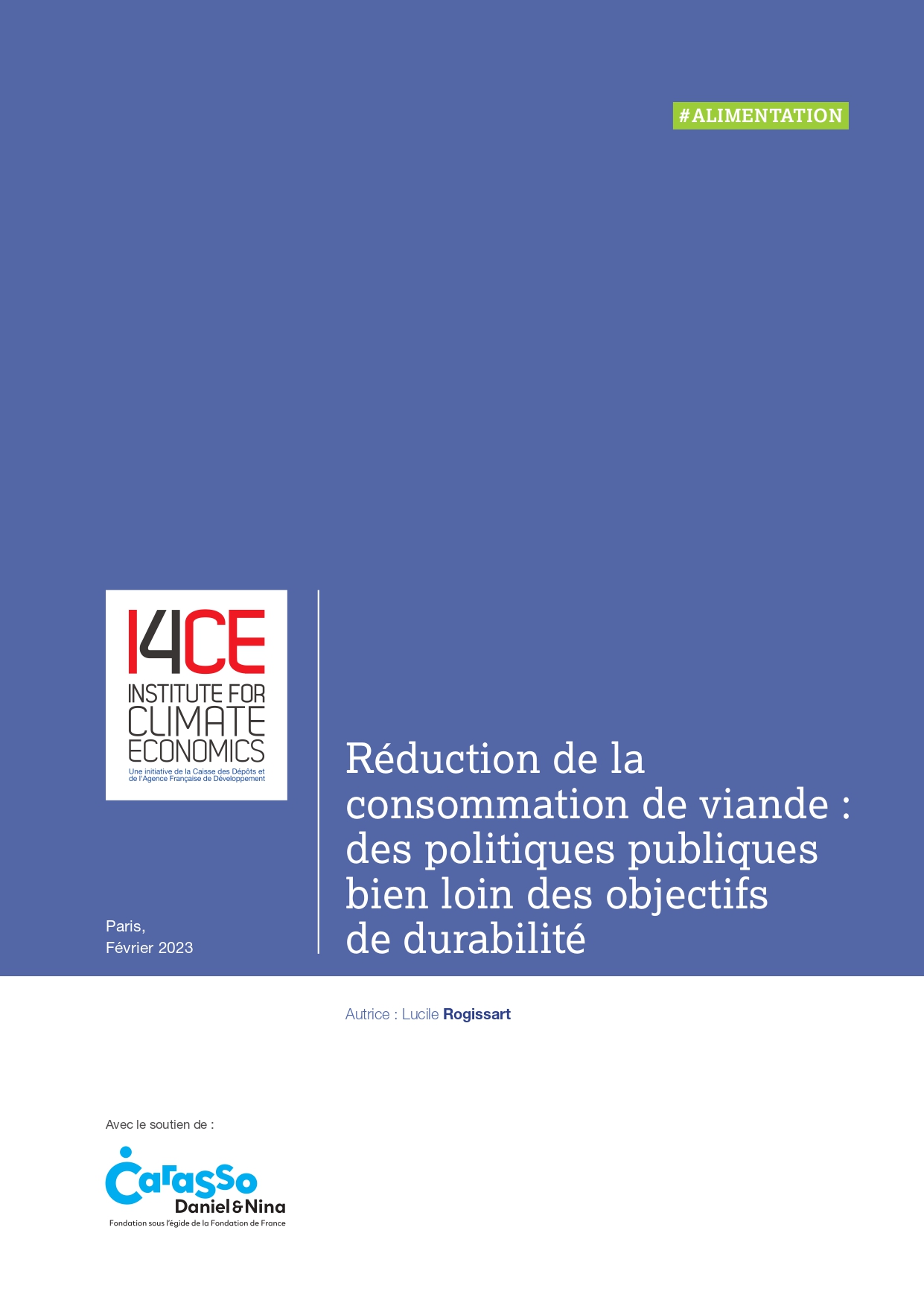Reducing meat consumption: public policies a long way from sustainability objectives
Livestock population in France has been falling for several decades (-20% for dairy cattle and -33% for sows since 2000), without necessarily reducing the quantities produced. But productivity gains will not be able to maintain production levels forever (see “Livestock farming transition: managing past investments and rethinking future ones“). For the decline in livestock farming to have an impact on the climate, it must be accompanied by a drop in meat consumption, but is this really happening?
Report only available in French
In France, total meat consumption is on the rise. It rose from 3.8 to 5.8 million tons of carcass equivalent between 1970 and 2021 (+50%). The increase in total meat consumption is driven by population growth, despite a fall in individual consumption that did occur between 1990 and 2013 (-11%). However, average meat consumption per person is now stagnating or even rising again, implying an increase in imports with no gain for the climate.
Beyond quantities, the nature of the meat consumed has changed significantly, with i) much more poultry and slightly less beef; ii) more restaurant consumption and iii) more processed meat or meat in processed dishes (nuggets, cordon bleu, pizzas, etc.).
While this report deals primarily with meat consumption, it also attempts to approach the dynamics of dairy product consumption, despite numerous methodological difficulties. According to our calculations, while dairy consumption has been declining since 1990, it also appears to have stabilized since around 2015. More precise data would nevertheless be required to be sure of this trend. As with meat, a transformation is taking place beyond total volumes: less consumption of milk and fresh products (yoghurt, cream, butter) but continued consumption of cheese.
At current rates, none of the sustainable meat consumption targets are likely to be met by 2050. All carbon-neutral scenarios count on a reduction in meat consumption, but at varying amplitudes ranging from -20% for the French National Low Carbon Strategy (SNBC), to -70% for ADEME’s scenario 1 by 2050. Without new, more ambitious public policies on the evolution of meat consumption, none of these objectives is likely to be achieved.
It is therefore essential to propose new public policies to change the trend.
Even before discussing the public policies to be implemented, the first thing to do is to tighten up and specify the total meat reduction target – and not just for beef. For one thing, the SNBC’s target for total meat consumption is the least ambitious of all the sustainability scenarios, and for another, the achievement of this target is backed by a single indicator for beef consumption. While this indicator is necessary, it is not sufficient: a fall in beef consumption cannot be offset by an increase in pork and poultry consumption, for a range of environmental and health reasons.
The public policies implemented or in the process of being implemented in France will very probably not be sufficient. Vegetarian menus in public catering have a limited direct effect (less than 5% of meals consumed), and their educational effects will only be felt over a long period of time. As for the revision of nutritional recommendations or the future introduction of environmental labelling, these are once again policies with an uncertain, long-term effect.
New leads of public policy and private-sector involvement must therefore be explored to bring meat consumption into line with the challenges of sustainability and the evolution of national production volumes. We have identified three main avenues: changing the food offer (in catering and distribution), changing social representations (via advertising, school and TV programs, etc.) and changing taxation and regulations (via a reform of VAT on food products, for example). Acting on these levers in a coordinated and fair manner is a real challenge, but one that must be met.
With the support of:


